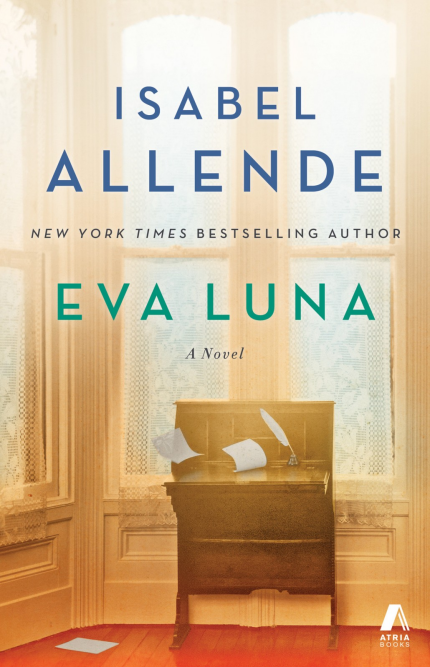Eva Luna, by Isabel Allende

Eva Luna by Isabel Allende
My rating: 4 of 5 stars
For about 30 years I’ve been a fan of Isabel Allende’s work, starting with her amazing “The House of the Spirits” (highly recommended as an introduction to her work). Allende’s style of magical realism, her strong storytelling and her beautiful prose so far have always managed to capture my heart.
“Eva Luna” was no exception to this rule: Allende’s writing is lush and evocative, and she creates a vivid sense of place and time. The unnamed South American country in which the novel is set is brought to life with rich detail, from the bustling streets of the city to the quiet beauty of the countryside. Allende’s descriptions of the natural world are particularly striking, and she imbues even the most mundane objects with a sense of magic and wonder. The way she weaves in themes of magical realism throughout the novel is truly masterful.
Even though the country is never named, it never ceases to fascinate me that it’s strongly inspired by Allende’s native Chile. She has acknowledged that the novel draws heavily on her own experiences growing up in Chile, and many of the political and social events depicted in this and many of her other novels are based on real-life events that occurred in Chile during the 20th century. I remember the grim news of the dictatorship of Augusto Pinochet who overthrew and assassinated democratically elected President Salvador Allende who was Allende’s cousin. To me, this makes Allende’s work even more important.
The character of Eva Luna is also a standout. Eva’s gift for storytelling is a central element of the novel, and Allende uses it to explore the power of narrative and its ability to shape reality. Eva is a complex and compelling character, and I found myself rooting for her throughout the novel. Her resilience in the face of adversity is inspiring, and her ability to find joy and beauty in even the darkest of circumstances is a testament to the human spirit.
The novel’s exploration of political turmoil and social injustice is also powerful. Allende does not shy away from difficult topics, and she portrays the violence and oppression of the time with unflinching honesty. Rolf Carlé, a guerilla fighter and Eva’s love interest, is particularly compelling in this regard. His passion for justice and his willingness to risk everything for his beliefs are both admirable and heartbreaking.
However, I do have some reservations about the novel. At times, the plot can feel disjointed, and the jumps in time can be confusing. Additionally, some of the secondary characters feel underdeveloped, and their motivations remain unclear. The novel’s episodic structure can also make it feel like a series of loosely connected stories rather than a cohesive narrative.
The novel’s themes of love, power, and storytelling itself are universal and both these themes and the story itself – despite having been published almost 40 years ago – feel timeless and relevant independently of age and place.
Four out of five stars.
Ceterum censeo Putin esse delendam
View all my reviews